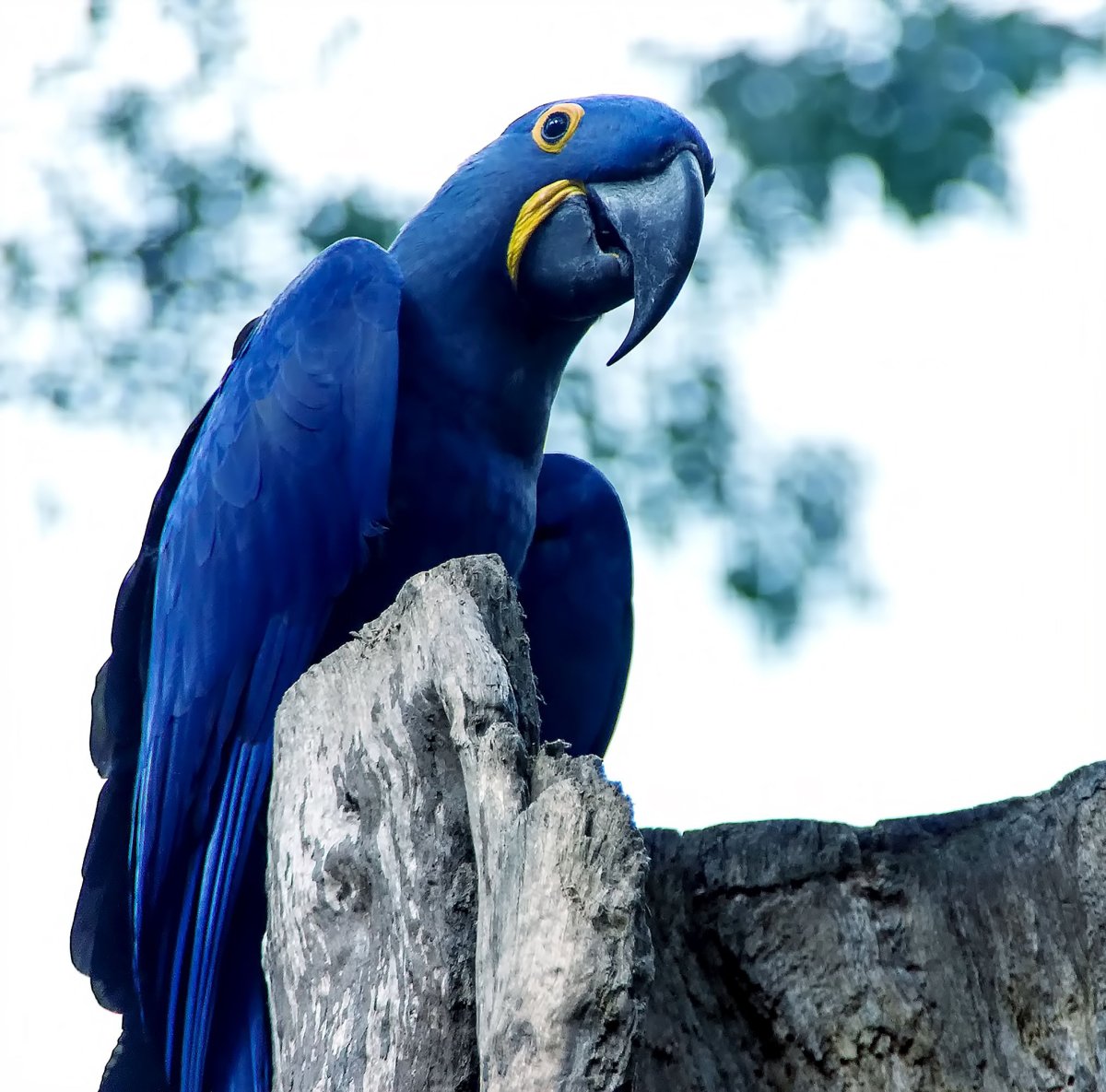In the past decade, eight bird species have been confirmed as extinct or close to extinction, including one featured in the children's film Rio.
The non-profit organization BirdLife International believes the cryptic treehunter, Alagoas foliage-gleaner and poo-uli now qualify as extinct. And the Spix's macaw, depicted in Rio, as well as the Pernambuco, are highly likely to be extinct.
The 2011 animation told the story two of the last Spix's macaws mating: released 11 years after the organization estimates the bird was wiped out in the wild. Around 70 are believed to live in captivity.
The researchers spent eight years conducting a statistical analysis of 51 critically endangered species for their study, published in the journal Biological Conservation. They assessed the animals according to the criteria for species being assigned to the International Union for the Conservation of Nature (IUCN) Red List.
The Hawaiian black-faced honeycreeper was last spotted in 2004, the cyptic treehunter has been missing since 2007, while the Alagoas foliage-gleaner was seen in 2011.
In what the organization called an example of the devastating impact of deforestation in South America, five of the eight species confirmed or suspected extinct were from the continent. Four inhabited Brazil.
Stuart Butchart, BirdLife International's chief scientist, commented in a statement: "People think of extinctions and think of the dodo but our analysis shows that extinctions are continuing and accelerating today."
"Historically 90 percent of bird extinctions have been small populations on remote islands. Our evidence shows there is a growing wave of extinctions washing over the continent driven by habitat loss from unsustainable agriculture, drainage and logging."

As scientists grapple to save species on the verge of being wiped out, researchers at the University of Exeter last year urged conservationists to work with filmmakers to raise awareness of endangered animals.
Advertising methods like product placement should be harnessed by conservationists, the team said, while warning against the so-called "Nemo effect" after the film depicting a clownfish prompted a spike in the creatures in captivity.
Dr. Matthew Silk, of the Environment and Sustainability Institute on the University of Exeter's Penryn Campus in Cornwall and author of the study, said in a statement at the time: "Movies could be used by conservationists to highlight issues of concern, much as product placement is currently used for advertising."
Uncommon Knowledge
Newsweek is committed to challenging conventional wisdom and finding connections in the search for common ground.
Newsweek is committed to challenging conventional wisdom and finding connections in the search for common ground.
About the writer
Kashmira Gander is Deputy Science Editor at Newsweek. Her interests include health, gender, LGBTQIA+ issues, human rights, subcultures, music, and lifestyle. Her ... Read more
To read how Newsweek uses AI as a newsroom tool, Click here.








